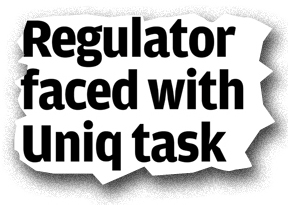Top five stories from Pensions Week past
As Pensions Week draws to a close – prior to its January relaunch as Pensions Expert – we take a look at some of the best stories and initiatives published over the past few years.
These stories demonstrate the value in pushing beyond press releases and industry chatter to provide readers with something surprising and, importantly, useful to them in their day-to-day jobs.
There are inevitably good articles missing – not to mention the swathe of auto-enrolment and investment case studies we have provided over the past year.
But this is an opportunity to look at the challenges faced by schemes since the turn of the decade – challenges that have not receded.
Whether it is tackling the almost unsolvable problem of an underfunded pension scheme attached to a failing employer, or cutting through the complexity of the derisking market, managers and trustees look to how their contemporaries are dealing with the same situations.
Next year, we will build upon PW’s legacy in providing tough, exclusive news by hunting for case studies that provide detail on how these decision-makers are faring.
The second tool is news analysis – we will continue to contextualise the latest stories for our scheme and industry readership, and analyse what they mean for those running a pension plan.
PW has always prided itself on standing apart from its competitors with exclusive news. As Pensions Expert, we will build on that by focusing more closely on the management of UK pension schemes.
October 2009: This campaign collected 32 ideas for new-style pension schemes.
“Countries all over the world, including Australia where I now work, are applying their minds to creating more reliable and adequate retirement incomes from defined contribution,” says ex-PW editor David Rowley. “The momentum is unstoppable. This campaign played its part in sparking this debate and it is heartening to see the highly persuasive pension income builder scheme now out for consultation.”
April 2011: This story demonstrated the growing momentum in the longevity swap market at the time. After some large-name deals, some of this head of steam was lost – until last week’s announcement of a £1bn longevity swap agreed for five defined benefit schemes, sponsored by support services company Carillion. Deutsche Bank, the provider in the latest deal, was revealed in this story to be entering the market for such swaps.
July 2010: Out of all of these stories, arguably PW’s breaking of the Uniq debt-for-equity swap had the widest impact within the industry. It is still used as the go-to example for innovative funding deals agreed between scheme, sponsor and regulator. Burges Salmon partner Clive Pugh raised a note of caution in the story, observing: “The scheme should only invest in the company if it [would be] happy to make that investment regardless of who the seller was.”
October 2010: This investment story focused on an innovative deficit reduction measure under consideration by a few English local authorities, following their private sector counterparts in taking ownership of assets from their sponsoring employers. Contingent assets were hotting up as an issue in 2010 (see the Uniq story above as the prime example) and have continued to be an important risk reduction tool for schemes.
January 2012: Another story to involve broadcaster ITV, this story from last year focused on a financial support direction issued by the Pensions Regulator regarding the pension scheme of defunct subsidiary Box Clever. ITV said it would “vigorously pursue” an appeal, and it has been true to its word, with an appeal to the Upper Tribunal pending. After an initial flurry of this kind of intervention by the regulator, directions for employer support have been more rare of late.






